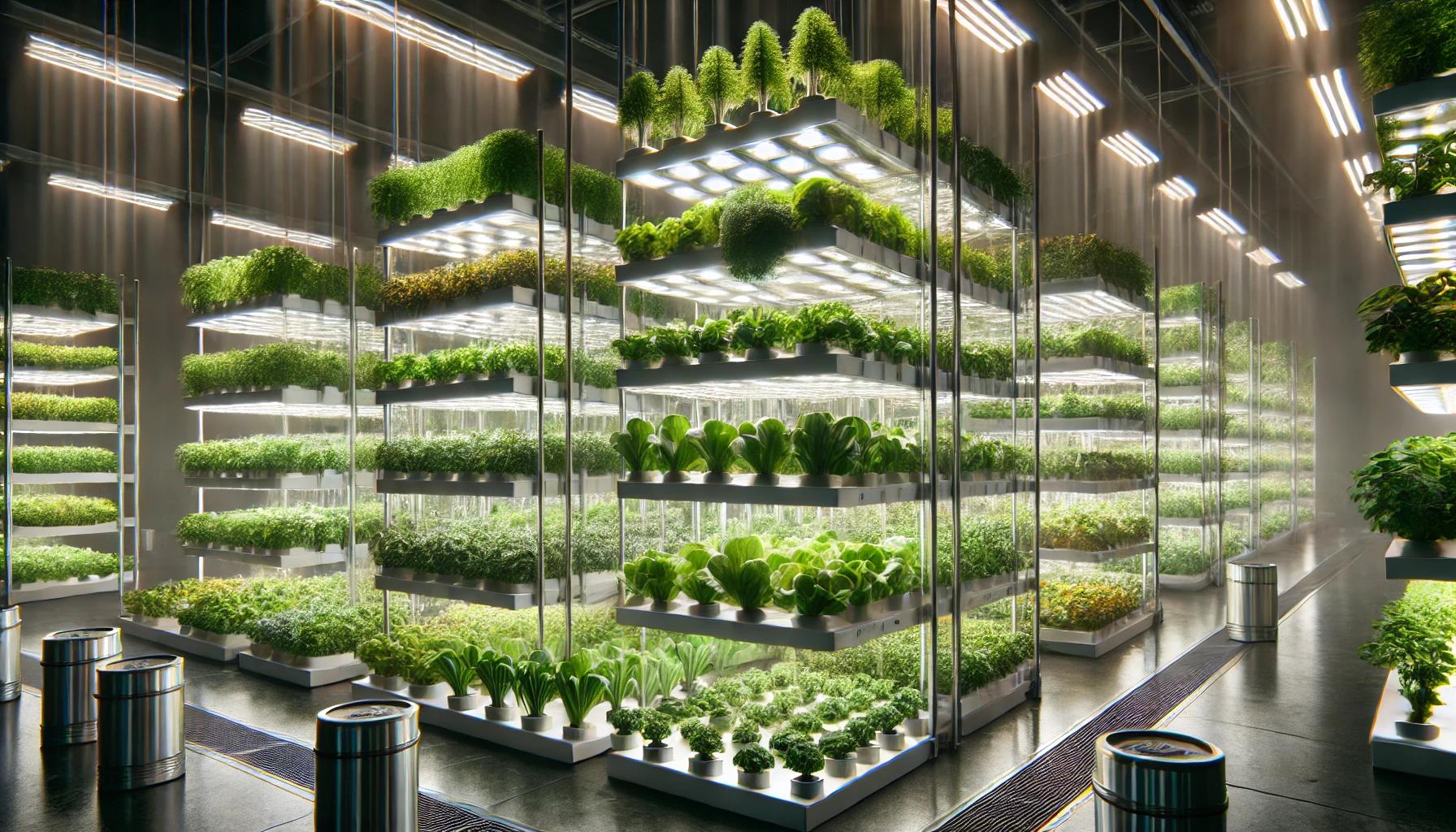
What is Vertical Soilless Farming?
Vertical soilless farming is an agricultural method where plants are grown using nutrient solutions instead of soil, typically in vertical systems. This method enhances space efficiency and conserves water.
Advantages:
Continuous Production: Harvest 365 days a year with much higher efficiency compared to a standard greenhouse.
Consistent Quality: Every harvest is subjected to the same quality standards.
0% Pesticides: Controlled environments prevent any harmful effects, eliminating the need for pesticides or herbicides.
Local Harvest: You can grow crops where they are consumed, minimizing the carbon footprint.
Water Efficiency: Plants absorb nutrients directly from water, using 90-95% less water.
Nutritional Value: Crops receive the nutrients they need, resulting in ultra-healthy and ultra-flavorful produce.
How Does It Work?
Vertical soilless farming systems operate using hydroponic or aeroponic methods. In these systems, plants are nourished with a nutrient solution containing essential minerals. Light and water are adjusted according to the plants' needs.
Application Areas:
Urban Farming: Can be applied in urban spaces like rooftops and balconies.
Agricultural Technology: Can be implemented in high-tech greenhouses or factories.
Sustainable Farming: Helps conserve natural resources.




